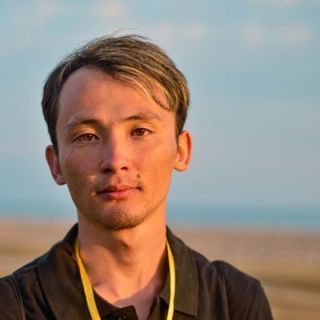
Diaspora ministry in Detroit
Metro Detroit is a mosaic of people and cultures: South Asian Indians in Farmington, Chinese in Madison Heights, Arabs in Dearborn, Bangladeshi in Hamtramck, and Japanese in Novi. Each culture brings restaurants, grocery stores, customs and beliefs. Many of these immigrants come from areas of the world where there is little access to the gospel and belong to people groups considered by missiologists as unreached or least-reached.
SEND International is committed to reaching unreached people groups throughout North America with the gospel and seeing culturally appropriate churches develop that can minister to these communities both here and abroad.
We envision our Metro Detroit work as a collection of teams working with different unreached people groups throughout the area and coaching churches to reach the immigrants around them. Currently, we have teams working with two distinct people groups.
Central Asian Team
Central Asians are rather new to Detroit. In 2017, our team first met a Central Asian family while teaching English in an Arab-dominated community. Over time, the number of Central Asian immigrants and refugees has continued to increase to the point where the team has decided to focus on them.
Central Asians in Metro Detroit face difficulty because they are often placed in Arabic-speaking neighborhoods by resettlement agencies when they arrive, although they do not speak Arabic. One family in dismay said to us that they feel like they are living in the Middle East and not in America. This cultural difference, though often unnoticed by Americans, is very real and often leads to prejudice and racism. Focusing on this community allows our team to create value and meet unique needs for these people.
The team’s desire is to serve Central Asians in love, to help them explore who Jesus is, and to see vibrant, reproducing churches develop. The team is building relationships with this group through English programs as well as one-on-one tutoring and meeting people’s practical needs. Through these relationships and programs, students are able to improve their English, which allows them to get better jobs, deepen their connection to their local community and not feel isolated.
These programs also provide opportunities for students to build relationships with Americans who can help them with other issues they face in their American experience, as well as just be a friend. Through these relationships, our team is sharing Biblical truth and praying that God would bless them with the fullness of life that only he can offer.

South Asian Team
In many of the suburbs surrounding Detroit, God is bringing young, professional South Asian Indians to come work in the growing healthcare and information technology fields. In fact, the population of South Asian Indians in Metro Detroit quadrupled from 1990 to 2004. This has led many communities to see Indian restaurants and grocery stores emerge as well as the building of Hindu temples.
This group of Hindu and secular professionals has been on our hearts and in our prayers for some time, and we are excited that a new team is launching to love and share the gospel in this community. Currently, our team leader is getting to know the community better so that he can see their needs and how the gospel may best flow through this community. Pray that God will give us wisdom, direction, and people of peace as we join with what God is doing in this community.
The path to missions can feel overwhelming! Our experienced mission coaches will walk alongside you every step of the way.
 • Find out how you can become a SEND missionary.
• Find out how you can become a SEND missionary.
Additional Posts




